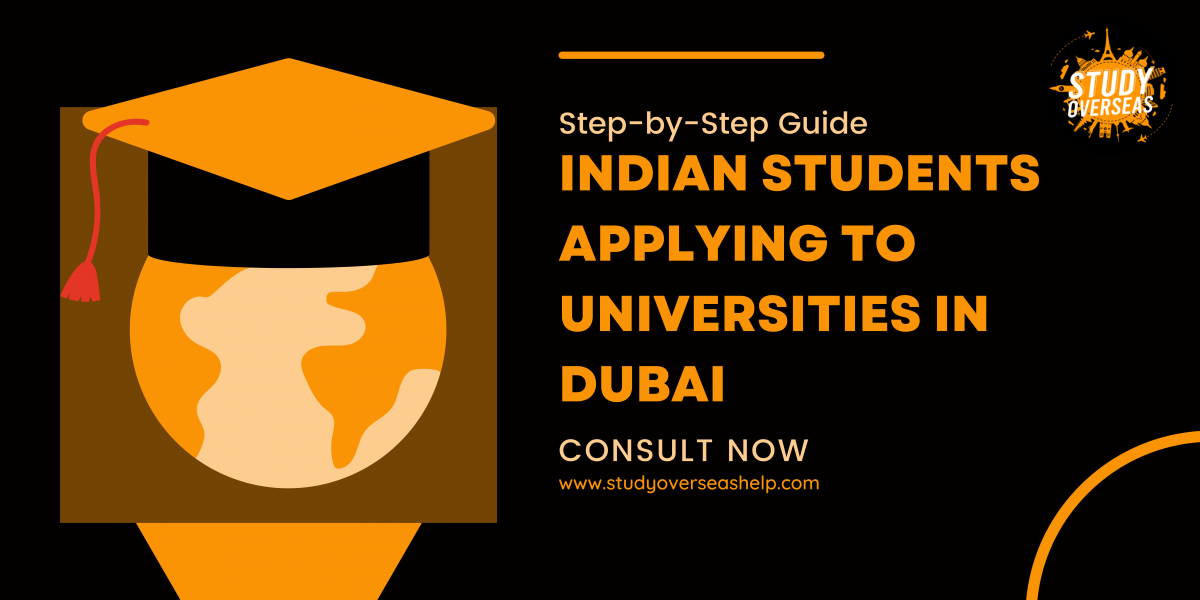According to the Economic Times article dated May 2024, students from India plan to study abroad for a multitude of reasons ranging from global exposure, and availability of scholarships, to access to advanced technology and innovation.
A stated fact derived from the Ministry of External Affairs is that a total of 1.5 million Indian students have applied to study abroad as of 2024. This makes it a hot and important topic to know and understand more about.
Why Study Abroad?
There is a long list of reasons why one might prefer to study abroad and a similar lengthy list of all the reasons why you should study abroad. Here are the ones that make it to the top of the list:
- Personal Interest: There are many individuals who love exploring different destinations, and are interested in the culture and stories that each place holds. Thus, many countries are a major attraction to people with aligned interests.
- Family Settlement: For some people, studying abroad is a way to stay close to family members stationed abroad. Consequently, studying abroad and bagging a job also allows the individual to settle overseas and start a family there.
- Global Exposure: Studying overseas provides exposure to students with a vibrant cultural life, networking with global leaders, and establishing one’s standing in the global job market.
- Financial Aid: There are certain countries that provide full coverage of tuition and living expenses for students from other countries willing to study in their country. Financial aid in terms of scholarships, sponsorships, and exemptions is yet another reason why students make the choice to study abroad.
- Access to Specialized Technology and Resources: Each country is famous for its top-ranking fields. There are differences in the technology, in the type of resources available, and the type of education provides. Hence, choosing a country that specializes in line with your requirements is beneficial.
- Research Scope: There are countries where certain areas have a better scope for research than the home country. This is another reason why students aiming for a research-based career seek to study abroad.
- Opportunities in the Job Market: Students aiming to settle in countries overseas or looking for jobs that are more advanced or thriving choose to study in the country that they want to work in. This makes it easy to settle in the job and in life.
What is the Eligibility to Study Abroad?
The eligibility varies at each level of education. Most popularly, students move overseas to pursue their Masters and Doctoral studies. Although many students also pursue their Bachelor’s degree, the frequency and number is quite limited. Moving forth, we will be discussing the general eligibility criteria required to study overseas. Do remember that each country has a different criteria list for eligibility to get educated in their country.
- Academic Transcripts: This includes your grade cards and minimum cutoff marks as stated by the university. At the undergraduate level of education, you need to clear exams of Grade 12, while for Masters the basic requirement is the completion of an undergraduate degree with the specified marks. Another requirement is that the students need to have a subject-specific background to apply and study the desired course.
- Entrance Exams: Based on the course you opt to study, and based on the university, the entrance exams differ. Subject-specific entrance tests, language-specific proficiency tests, and Aptitude tests are among the few.
- Age: Usually, the age to study abroad lies within the range of 17-35. Although students can pursue their courses beyond that age, there are some restrictions on scholarships and education loans.
- Medicals: Before flying overseas to study your desired course, you need to undergo a medical fitness examination. This includes checking for any major health issues, possibilities of infectious diseases and such others.
- Finances: During the passport and Visa application and verification, each overseas country has a requirement of minimum bank balance in the account of the student. This is to ensure that all the student is able to take care of their basic necessities in the foreign country.
Exams Required to Study Abroad
The list of exams required for studying abroad is mentioned in the following passages.
But, the first step essential to know the type of exam you need to prepare for, is consulting with the university and learning about the exam results they require. Now, with each different country, a set of different entrances take place. So you need to know the general aptitude tests, and Language tests put forth by the university. To study in countries of Europe, you can avail a scholarship by sometimes gaining mastery over their national language. Don’t forget to check for this factor too!
That apart, we can classify the other exams at two levels; one is the undergraduate level examinations, and the other is the graduate level examinations. They can further be divided into Language proficiency tests and subject proficiency tests.
- IELTS
The International English Language Testing System is a language proficiency test which is a sure-shot pre-requisite to study overseas. It is required at both the undergraduate level and the graduate level and is required in countries where the primary language of communication is English. It covers the Listening, Reading, Writing, and Speaking areas of the English language.
Available in the General Training version and the Academic version, each component of this test is divided into sections and has a total of 40 questions in the Listening and Reading section, 2 questions in the Writing section, and a variable number of questions in the Speaking section. The format of questions ranges from Multiple choice questions, sentence completion tests, match the following, and short and long answer types of questions. To take the IELTS, a fee of around about 15000 to 16000 INR is required to be paid to the official IELTS organization.
- TOEFL
The Test of English as a Foreign Language is yet another test that measures the English Proficiency of students. Widely available in the online and offline format, this takes an average of 3 hours to complete and comprises of the same categories as IELTS, namely Reading, Listening, Writing, and Speaking.
Scores on TOEFL are usually valid for up to two years and are majorly required for University admissions, certification, and Visa application. The test focuses more on the academic and integrated skill concept as compared to IELTS which has a focus on communication and real-life context questions. They also differ in the total time, contents and sections, and the scoring system. The fee to be paid to be eligible to give the test ranges between 15000 to 17000 INR. Apply well before time so that you do not end up paying the late fees.
- SAT & ACT
Both of these Entrance examinations are widely used in the United States as a standardised measure to qualify students to pursue their studies in the USA.
The Scholastic Aptitude Test consists of questions on English Language, Math, and writing of an essay based on a paragraph. The essay is optional. With the essay, the total duration of the test is around 4 hours. The test is offered multiple times a year in months of August, October, November, December, March, May and June. The fee for the SAT ranges from 7000 to 8000 INR
The American College Testing is a test used to measure a high school student’s proficiency in English, Math, Reading, Science, and Writing. Similar to the SAT, but with added subsections, the duration of the test ranges from 3 to 4 hours. The fee for the AT ranges between 14000 to 16000 INR.
- GRE & GMAT
The Graduate Record Examination is a standardized test required to take admissions in graduate schools across the USA, Canada, and some other countries. Often prevalent in the fields of Business and Law, this examination measures verbal reasoning, analytical skills, quantitative reasoning and related other skills of the individual. It is divided into two parts; the first is a general test while the second is specific to the subject that the individual wants to pursue further. The fee required to be eligible for the GRE is between the range of 18000 to 20000 INR.
The Graduate Management Admission Test is a specialized and standardized entrance test required for students wanting to pursue a degree in the management sector, typically an MBA degree. It measures the student’s reasoning skills at verbal, quantitative, and analytical levels. The scores are broken down into categories of Analytical writing skills, Integrated reasoning skills, and Verbal and Quantitative reasoning. With a test duration of around three and a half hours, the fee for the test is between 22000 to 24000 INR
- MCAT & LSAT
Both covering their own specialties, the MCAT and LSAT are entrance exams for Medicine and Law respectively. Popularly used in the United States and Canada, they are also used by other countries offering these courses.
The Medical College Admission Test is the entrance required to study medicine overseas. It has four main components that involve Biological foundations, Chemical and Physical foundations, Social and Psychological foundations, and Critical analysis and Reasoning skills. The scores are a combination of the four sections and are converted to percentiles more often. The fee payment to give the MCAT is between the range of 32000 to 36000 INR.
LSAT, short for Law School Admission Test is the entrance required to study law overseas. The components of the test consist of Logical Reasoning, Analytical Reasoning, Reading comprehension, Experimental section, and writing section. The LSAT is conducted usually in the months of January, February, April, June, August, September, and November. The fee payment of the LSAT is between the range of 19000 to 22000 INR.
How to Prepare for These Exams?
By far, the most important question arises now. And that is knowing how to prepare and qualify for these tests. Here are a number of things you can pay heed to, to qualify for these examinations.
Step 1: Check the requirements and the eligibility criteria of the university to know which entrances are required.
Step 2: Browse and find relevant information regarding these tests. Make yourself familiar with it.
Step 3: Visit an education consultant to help you understand better about the examinations. You can either make a decision between preparing for these exams independently or joining coaching for the same.
Step 4: Make yourself familiar with the portion and the pattern of the test. This can be done by referring to previous years’ question papers.
Step 5: Prepare, Study, read materials, solve questions.
Step 6: Give mock exams.
Step 7: Re-work on areas that need improvement.
Step 8: Prepare yourself to be mentally calm during the examinations.
Step 9; Revise.
Step 10: All ready for the examination!
Hope you have a good time learning and qualifying!









